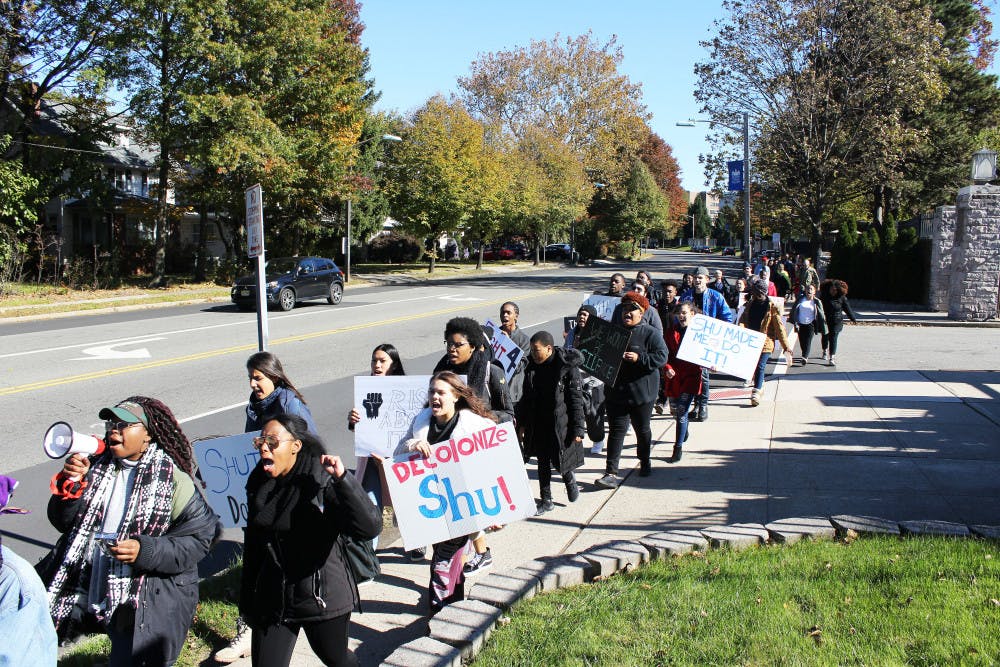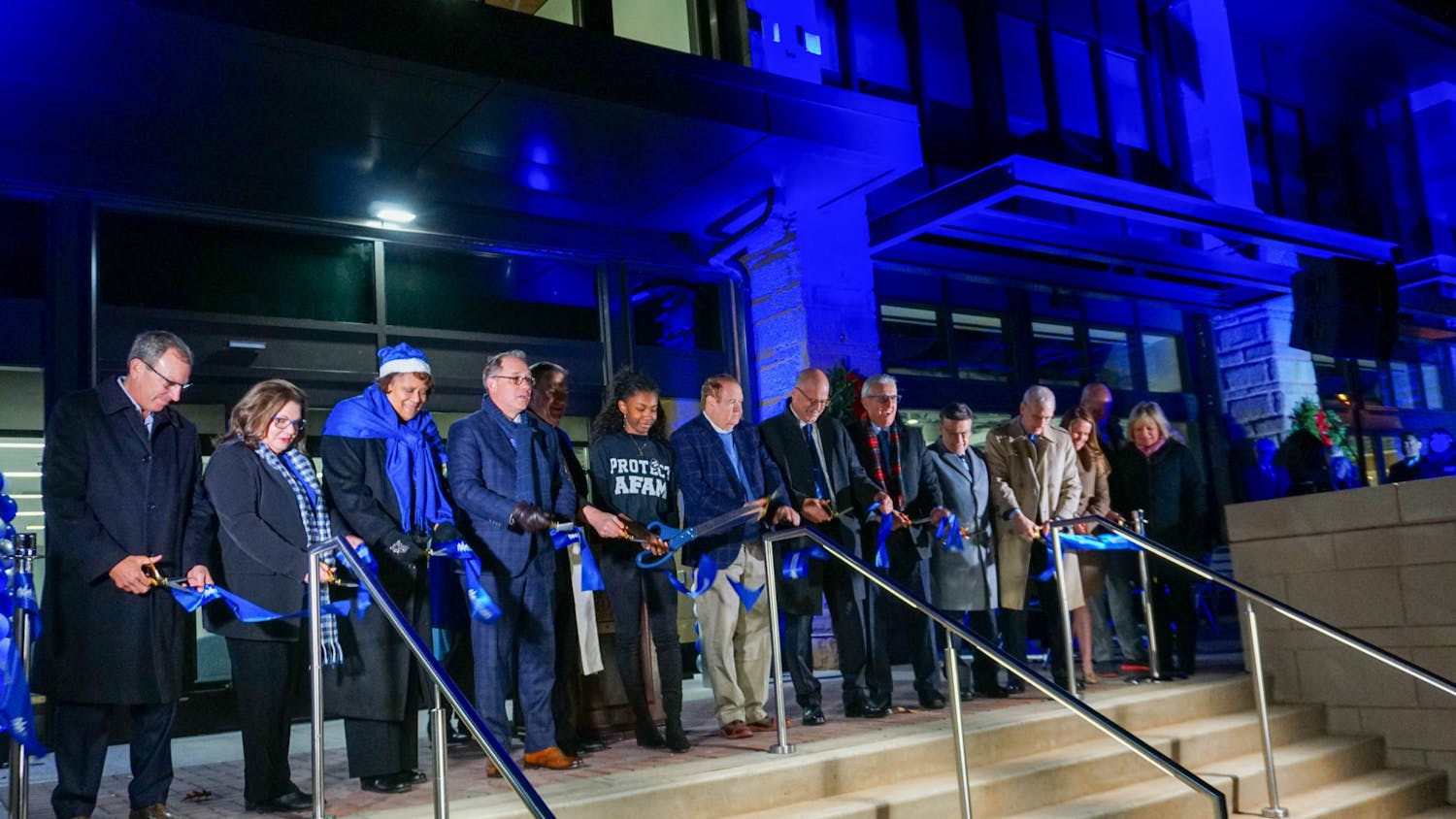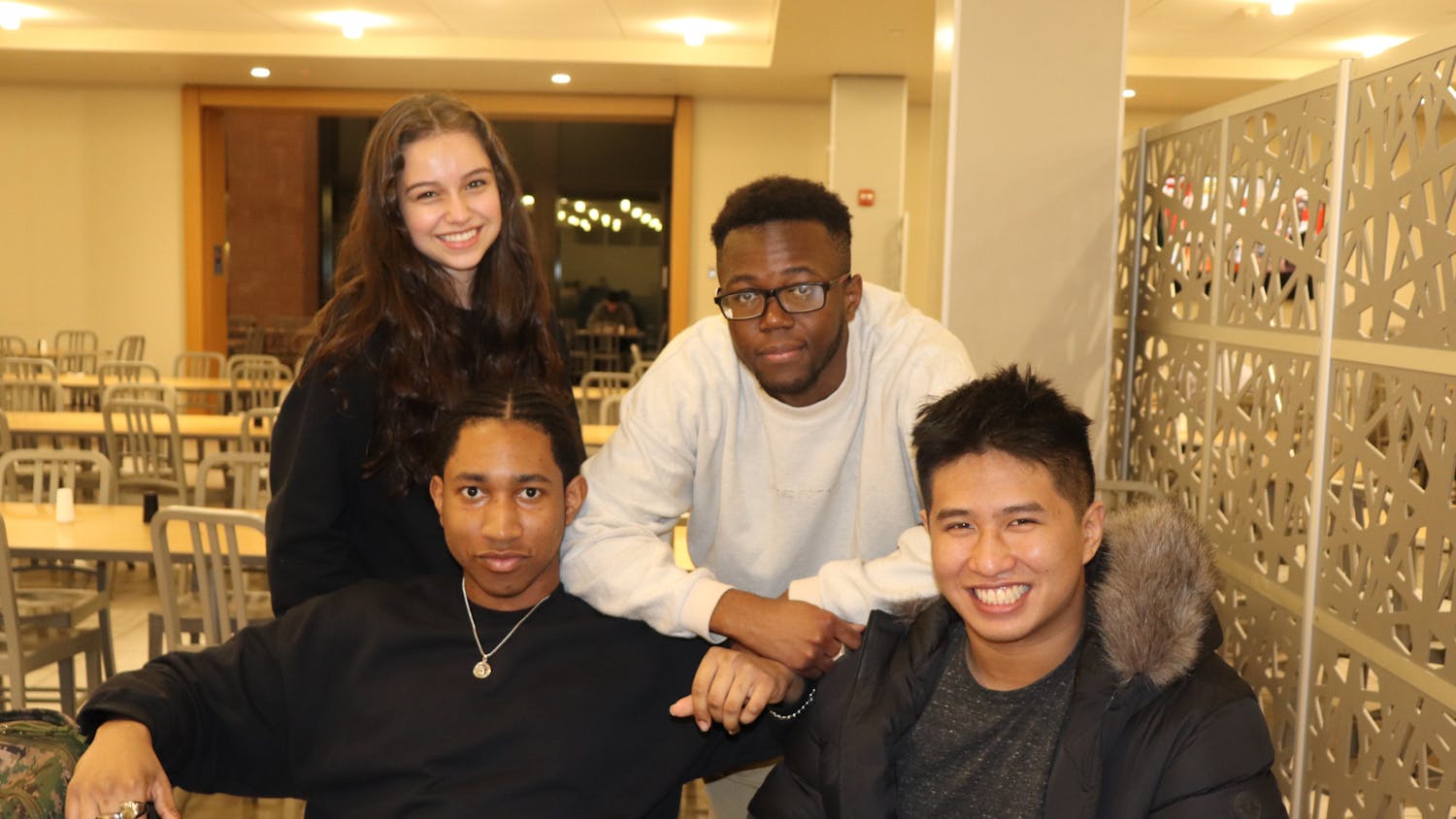The Africana studies program at Seton Hall will lose its only full-time faculty member at the end of the fall semester.
Dr. Kelly Harris, the current head of the Africana studies program, said his departure is due to his contract with Seton Hall ending this year.
Harris was offered a tenure-track position to remain at Seton Hall, but he decided not to take it.
“In our negotiations, we didn’t agree,” Harris said. “I declined it, and I’m going elsewhere. So, this is my last semester.”
As of right now, Harris said he was not aware of what would to happen to his classes next semester. He was set to teach “introduction to African American studies” and “history of the civil rights movement.”
It is currently unclear when the position of director will be filled.
Harris said he got his job as a result of the “Concerned 44” protests, which demanded the program’s creation via a 10-day sit-in in President’s Hall in 2018.
Just over four years ago, the Concerned 44 released a list of demands, including that professors with a doctorate in Africanas studies be hired no later than fall 2019. The group also demanded the University hire at least five full-time professors for the department. This demand was not fulfilled.
Harris said the Africana studies program is still understaffed despite these demands.
“You can't run a department with one full time faculty member,” he said. “It’s not the best thing for the students.”
Harris said he believes students deserve to hear from a diverse number of voices.
“While I think very highly of myself and my ability to teach, it's not fair to the majors that they have to take so many classes with me,” he said. “There should be other voices so that students are able to listen to other perspectives and other faculty with expertise in different areas.”
Reverend Forrest Pritchett, a current part-time professor in Africana studies, said he felt sad at the news of Harris’ departure.
“He was such a quality person. He could really be teaching anywhere in the country,” Pritchett said. “I thought he was a good find and was somebody who could really grow with the development of the department.”
One recommendation Harris said he gave to the dean of Arts and Sciences, the college which houses the major, was to use cluster hires for tenure track positions.
“That means they hire three people at a time,” Harris said. “Africana studies is interdisciplinary, so you really could feed the women’s studies program and Africana studies at the same time.”
Harris added that, along with Africana studies, the cluster hires could be experts in Latino studies, history or environmental studies.
Because of the lack of full-time faculty in the program, Harris said he does not think that the University cares about Africana studies.
“I think they only care about it in terms as something to appease the students,” Harris said. “A real commitment to it would be to invest in faculty and hire more faculty.”
Pritchett said he believes the University would not hire more than one full time faculty member because their decisions are often determined by the number of students taking the classes in the program.
“When it comes to hiring more than one full-timer, unfortunately, the University probably would not want to make the commitment financially to be paying for two or more additional people,” Pritchett said.
According to the Seton Hall Director of Media Relations Laure Pine, the Africana studies Program is not at risk of being cut, despite Harris’ departure.
“The College of Arts and Sciences wants to ensure a successful search to find the best candidate following our guidelines and best practices for faculty hiring,” Pine said. “We are now seriously engaging in these efforts. As for all full-time faculty positions at Seton Hall, this search will incorporate student participation.”
Harris said he believes Seton Hall is investing in diversity and inclusion as an alternative to Africanas studies.
“Diversity and inclusion is not an academic discipline,” he said. “Africana studies is an academic discipline, and the strength of any University is its students, faculty and curriculum. We do Africana studies a disservice when we only have one full time faculty member.”
While Africana studies lacked full time faculty, Harris added that Seton Hall supported him as the director when it came to developing the program.
“If I wanted to bring speakers in, or if we hosted a convention for high school students, they supported me in that effort,” he said. “I can't complain about that, but that's not enough. The support needs to go beyond bringing in speakers.”
Fatimah Toure, a senior political science and Africana studies double major, is part of the Black Caucus and said the organization is working on a more strategic plan to address both immediate and long-term issues.
“The more immediate issues that we are working to address would be filling in the director position,” Toure said. “We need someone in that position who actually cares about the students and how Africana studies is being taught.”
Tawanna Brown, a sophomore political science and African studies double major, is also involved in Black Caucus. She said the organization wants to address the lack of advertisement for Africana studies courses as well as the lack of course selection.
Toure said the Black Caucus would be sending out a petition for students to sign, and she said she hopes students will also share it with communities outside of Seton Hall.
According to Harris, gaining support for the program from the entire student body is important. He said he believes white students and other students of color should also be involved with these demands, but they might feel like “it’s an issue for Black students.”
“I think that's the wrong way to look at it,” Harris said. “I feel like there's still this idea that Africana studies is Black. In some ways, it is because it started from the Black freedom struggle and Black student movement in the 1960s. But it was never intended just for Black people.”
Pritchett, who has been teaching in Africana studies since 1978, explained how students in the 1970s and 80s used to support the program by taking “a couple of the courses, one or two” before they graduated.
“Students normally need five courses per semester, 10 per year to meet their graduation requirement,” Pritchett said. “But if they could squeeze in, over their four-year period, a couple of courses in Africana studies, that's how everybody at this University can help.”
In regards to Harris’ classes next semester, Pine said “the dean’s team confirms that the spring semester courses will be covered as students will be able to see soon on the course registration site.”
Dareen Abukwaik can be reached at dareen.abukwaik@student.shu.edu.





